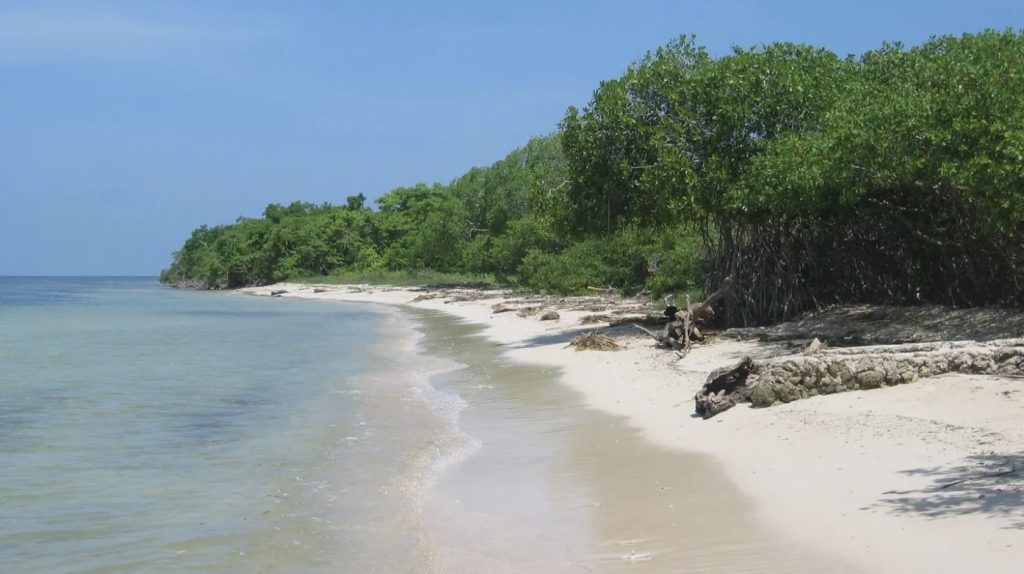When Forbes highlights coral reef restoration, it signals something powerful: the world is paying attention to the urgent fight to protect reefs. And solutions are within reach.

Recently, Forbes featured Dr. Valeria Pizarro, one of our lead coral scientists at the Perry Institute for Marine Science (PIMS). Her pioneering coral conservation work in Colombia demonstrates how science and tourism can come together to drive reef recovery.
In the article, Valeria describes restored reefs this way:
“They build up together and create all sorts of different structures where animals can live.”
Her words echo the central idea of coral reef restoration in the Caribbean: that when corals recover, they knit together habitat complexity, enabling fish, invertebrates, and other marine life to return.
 Beach view of Colombia’s Islas del Rosario, part of the Caribbean region where Dr. Pizarro’s coral reef restoration and marine biodiversity conservation efforts are underway in this highly popular dive site. Source: GETTY
Beach view of Colombia’s Islas del Rosario, part of the Caribbean region where Dr. Pizarro’s coral reef restoration and marine biodiversity conservation efforts are underway in this highly popular dive site. Source: GETTY
Science and Tourism Working Together
Coral reefs in the Caribbean are among the most threatened ecosystems on Earth, facing rising ocean temperatures, disease, and human impacts. Yet research shows that restoration techniques, like coral planting, can help reefs bounce back when combined with effective management and community engagement (NOAA, 2023).
Dr. Pizarro’s work highlights a growing movement: eco-sustainable tourism. By partnering with hotels and dive operators, coral restoration projects not only improve reef health but also create meaningful experiences for visitors who can directly witness — and contribute to — coral reef recovery.
The Role of the Reef Rescue Network
This vision extends across the region our coral restoration offshoot, the Reef Rescue Network; also the largest coral restoration alliance in the Caribbean. With more than 30 nurseries and dozens of dive shop partners, the network enables tourists to participate in coral planting through scuba trainings and restoration certifications, learning about coral reef restoration in the Caribbean firsthand. This model supports a blue economy where conservation and tourism thrive together.
PIMS Leadership Across the Caribbean
At PIMS, our scientists are restoring endangered corals such as elkhorn and staghorn, training the next generation of marine scientists, and building collaborations that scale coral conservation globally, across The Bahamas and beyond. Indeed, studies show that well-designed restoration projects such as ours can increase fish abundance, biodiversity, and reef resilience (ScienceDirect, 2021).
Recognition from Forbes underscores the importance of our work. It validates that coral reef restoration is not only a scientific priority but also a global movement that unites communities, businesses, and conservationists in protecting one of Earth’s most vital ecosystems.
How You Can Help
Coral reefs are still under siege, but we can change their future. By supporting organizations like PIMS, you can be part of coral reef restoration in the Caribbean and help scale impact across the region.



Let’s work together to ensure that future generations inherit thriving coral reefs and the biodiversity they sustain.



